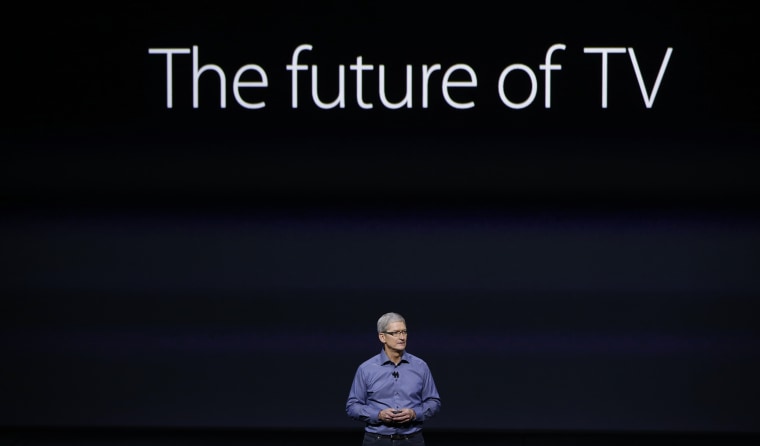Tech had a banner year in 2018, with Apple hitting a trillion-dollar valuation and the tech sector leading stock market gains in the early part of the year. But just two days in, 2019 is already proving to be a bear for the industry.
While still optimistic about the long term, tech investors are nonetheless gearing up for a rocky road ahead.
The new year started with Apple's announcement on Wednesday that it had been overly optimistic about its sales, leading to a massive stock market sell-off that left the three major U.S. exchanges down by about 2 percent each by midday Thursday and knocked $56 billion off Apple's market cap.
Apple Chief Executive Officer Tim Cook focused on China's economic slowdown as the source of the company's woes — making him the latest tech insider to add an exclamation point on growing concern that things will get worse before they get better.
On Tuesday, one day before Apple's announcement, prominent venture capitalist Fred Wilson offered his predictions for 2019, including a word of warning on China and the ongoing trade tensions with the U.S.
"Any significant trade concessions from China could impact its growth prospects in 2019 and beyond, which will take the most powerful engine of global growth off the table this year," Wilson, co-founder of Union Square Ventures, wrote on his blog.
Concerns about China extend far beyond the tech industry, but with large and middle-tier tech companies needing to grow to meet investor expectations, a slowdown originating in the world's second-largest economy poses a particular threat.
"What this is doing is dampening a lot of the enthusiasm for a lot of players in a lot of sectors because China is so important as a growth engine," said Horace Dediu, a tech industry analyst.
Wilson wrote that he remains optimistic about the future for innovative companies, but noted that he expects some of the industry's most recent success stories — ride-hailing companies Uber and Lyft, as well as business software company Slack — to fall short of any "lofty expectations" if they continue with plans to go public in 2019.
Wilson's worries had previously been echoed by other tech investors.
A quarterly survey of venture capitalists, conducted by University of San Francisco Professor Mark Cannice, found a sharp dip in confidence in the last three months of 2018, with investors focusing on a mix of microeconomic and macroeconomic factors: rising interest rates, high private-market valuations, political uncertainty and even rising costs associated with the startup-heavy Silicon Valley areas.
Venky Ganesan, a partner at venture capital firm Menlo Ventures, told Cannice in October that he expected trouble.
"Time to find your seats," Ganesan said. "Because when the music stops, it is not going to be pretty."
"While I am very optimistic for the long run (5-7 years), the short-term forecast is cloudy with a good chance of rain,” he said.
When asked for an update on his perspective after Apple's news, Ganesan said he sees things the same as he did in October — "just more convinced."
He added he believes that Apple's news marks a turning point where big tech companies would no longer enjoy the runaway success of the past few years.
"In the last few years people have made a lot of money by just investing in big tech," he said. "Big tech has jumped the shark, and we are now in a much more nuanced market."

